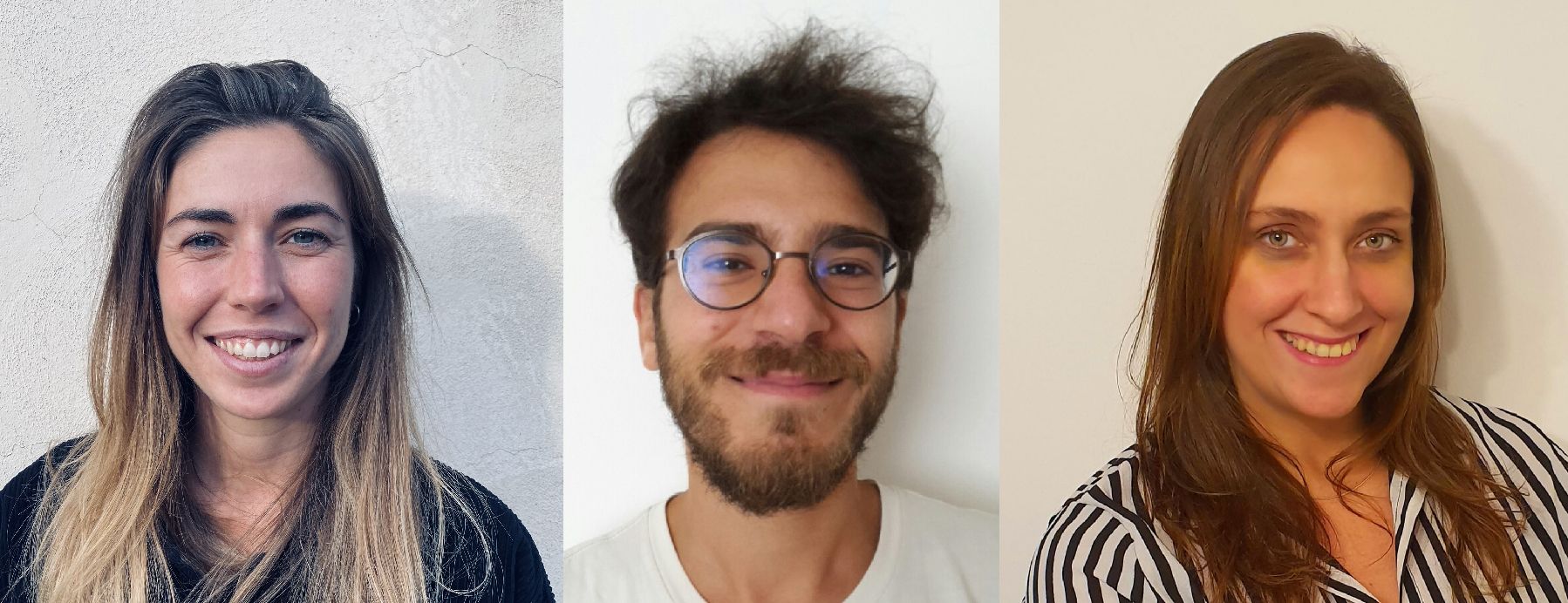Interviews with students of the In-Tour Master Course on Inclusive Tourism Manager at the University of Genoa (IT)

Photo of (from left to right): Chiara Giordani, Luigi Conidi, Chiara Gardella
Why did you decide to follow the Inclusive Tourism Manager Master course? How does it link to your interests and/or background?
CHIARA GIORDANI: I have always acted with the idea of having a positive impact on society and I believe that the In-Tour project is more than a course – it is an opportunity to significantly create positive societal change. I'm currently working on a project to help make sport accessible for everyone, and the feedback is remarkable. It's important for me to do the same in tourism.
LUIGI CONIDI: I've been working in the field of inclusive culture and tourism for almost five years, dealing mostly with accessible tours and solutions for people with visual impairments. Also, coming from an academic background in the humanities, as well as being a tour guide, it only felt natural to move onto this course and further develop my professional skills and experience. I’m thankful I was given the opportunity.
CHIARA GARDELLA: I decided to follow this Master course because I think, in 2022, everyone should be considered a “whole person”, regardless of physical or intellectual disabilities, and I thought I could make my small contribution to this important cause.
Why do you think the topic of Accessible Tourism is so important?
CHIARA GIORDANI: The thing I love most about travelling is meeting different people. That means encountering different cultures, traditions, and points of view, all of which have enriched me both personally and professionally. I think that this is an opportunity that all people should be allowed to experience. I would almost go so far as to say that it should be a right. On top of being beneficial on a social level, accessible tourism also offers great opportunities for economic development for communities that receive tourists.
LUIGI CONIDI: It’s important because travelling, much like participating in cultural and leisurely activities, is an opportunity that everyone deserves to have. However, I also find that, especially at a time of global crisis, considering more diverse approaches to travel and acquiring knowledge can present real opportunities to rethink the way we structure societies for the better.
CHIARA GARDELLA: I often think about our society and the daily problems people with disabilities have to face. For me, tourism should be a happy experience for everyone – a reality where tourists are worried about the huge number of attractions they need to fit in and visit in a few days, instead of the mere possibility of seeing them because of their disabilities.
What has been your favourite part about the Master course so far?
CHIARA GIORDANI: I've really enjoyed aspects that relate to researching and planning the development of services and key areas. I also like doing teamwork with my classmates; even though we all have different backgrounds, we’re all working together towards the same goals.
LUIGI CONIDI: I enjoy learning the theory, where we also sometimes learn more technical terms surrounding different disabilities that I had no prior experience with, especially when it comes to web accessibility.
CHIARA GARDELLA: Each professor brings a different argument and perspective. So, even if scenarios sometimes appear to be similar, they’re approached from different points of view. For me, this is what makes a good course.
Were there challenging moments?
CHIARA GIORDANI: The main challenge is finding the right balance between studying and working, but if you want to achieve something, you will always find a way.
LUIGI CONIDI: So far, I would say the most challenging thing is working and studying at the same time.
CHIARA GARDELLA: It’s very hard for me to follow numerous classes whilst working full-time. We are currently doing online lessons three days a week, with six in-person hours on Fridays to do case studies and team-building activities – it's very hard but also very useful!
What do you think your Master course will allow you to achieve in your future career?
CHIARA GIORDANI: I would like to change the general mentality towards accessibility – for it to be thought of as an integral, natural part of tourism and everyday life, rather than as a minor addition or a second thought. Personally, becoming a manager in inclusive tourism means upholding these principles, and working to make them the norm in people's thinking.
LUIGI CONIDI: I hope it will provide me with useful tools and knowledge that I can use to not only improve the projects I'm already involved in through the association I work for and our partners, but also to create a more interesting and well-rounded professional profile to collaborate with new entities in the public and private sector.
CHIARA GARDELLA: I hope it will allow me to secure a better job in a different sector, and one that's closer to my interests in people and tourists.
